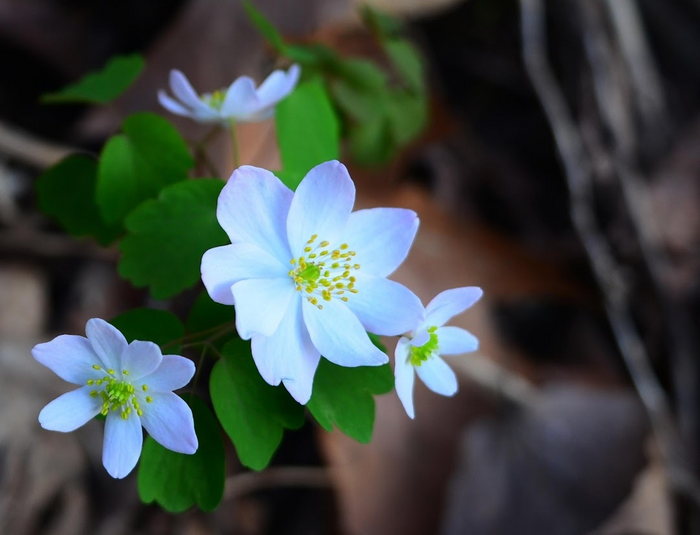The timing of when plants flower, fruit and reach other stages in their life cycle, impacts ecosystems around the planet. From better predicting when agricultural crops will be ready to harvest to pinpointing when allergy season will begin and end due to high pollen counts, tracking plants’ life cycles worldwide is important, which is why LSU biologist Daijiang Li is building the first worldwide database on plant phenology, or the study of the timing of plant life cycles, which will be called Phenobase. He and his collaborators will integrate existing observatory phenology records from different networks across the world, such as the USA-National Phenology Network, to extract phenological information from the millions of digitized specimens, and tap into the vast amount of photos of plants collected by people around the world who have uploaded their images to online social media platforms such as iNaturalist and Budburst.

Credit: Daijiang Li, LSU
The timing of when plants flower, fruit and reach other stages in their life cycle, impacts ecosystems around the planet. From better predicting when agricultural crops will be ready to harvest to pinpointing when allergy season will begin and end due to high pollen counts, tracking plants’ life cycles worldwide is important, which is why LSU biologist Daijiang Li is building the first worldwide database on plant phenology, or the study of the timing of plant life cycles, which will be called Phenobase. He and his collaborators will integrate existing observatory phenology records from different networks across the world, such as the USA-National Phenology Network, to extract phenological information from the millions of digitized specimens, and tap into the vast amount of photos of plants collected by people around the world who have uploaded their images to online social media platforms such as iNaturalist and Budburst.
Because the majority of existing phenological data comes from the U.S. and Europe, there is a dearth of publicly available information on plant phenology from other countries, especially developing countries in the southern hemisphere. In addition, the majority of this scientific data is concentrated on a small subset of plant species from over the past 20 years. One of the project goals is to close the spatial, temporal and taxonomic gaps in plant phenology.
“That’s what spurred the idea of Phenobase. We can take advantage of all of the information and all of the images across the world. For example, iNaturalist has become such a popular app that we see it as an opportunity to leverage the data collection from millions of citizen scientists around the world to help the global community track plant phenology and how it’s changing around the planet,” said Li, who is an assistant professor in the LSU Department of Biological Sciences and the Center of Computation & Technology.
The majority of plant phenology data collected by the scientific community dates back to only about 2000. Phenobase will also fill this gap in time by leveraging the National Science Foundation’s Integrated Digitized Biocollections, or iDigBio, database that has nearly 50 million digitized plant specimens from herbaria spanning the decades.
With $1.5 million in support from the National Science Foundation, Li and his colleagues will use artificial intelligence, or AI, and machine learning to extract the phenology information available through the millions of images provided by iDigBio, Budburst and iNaturalist. Such image-based phenological information will also be integrated with existing observatory phenological records to build Phenobase. Phenobase will be open access and will credit all data contributors.
“This grant will set a solid foundation for phenological research for the next several decades,” said Li, who is the lead principal investigator on this grant with co-principal investigators from the California Academy of Sciences, University of Florida, University of Arizona and the Chicago Botanic Garden.




